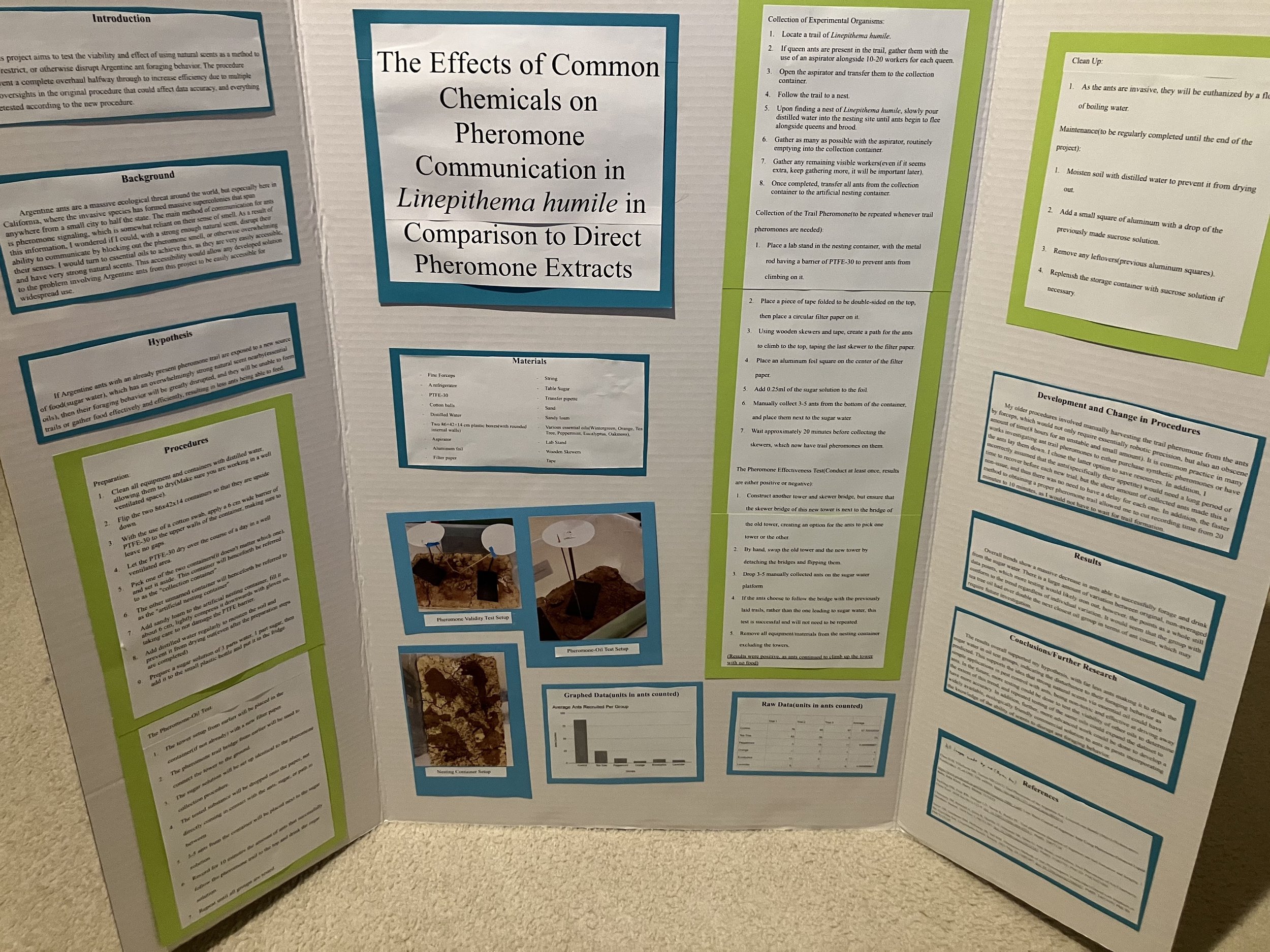The Effect of Common Chemicals on Pheromone Communication in Linepithema humile in Comparison to Direct Pheromone Extracts
By Ryan Mo | Valley Christian High School, San Jose, California, United States
I. Abstract
The invasive Argentine ant(Linepithema humile) has spread around the world and has caused great ecological damage, especially in California. Ants rely on pheromones to communicate and coordinate their activities, and this heavily relies on their sense of smell. In this project, I set out to test for a measurable effect of concentrated natural scents on the foraging capabilities of Argentine ants with an established pheromone trail. If this proves successful, it could be used to help control Argentine ant populations. To test said natural scents, I would use essential oils of various types. The ants were stored in a plastic container indoors for testing, and PTFE-30 was used as a barrier to prevent escapes. In addition to the oil tests, there would be a control group with no oils present. Sugar water would be placed on a tower alongside the tested substance, and access was restricted to a thin stick which already had a pheromone trail on it. The process was recorded and repeated three times per group, for ten minutes per test. The results indicated that the ants were greatly deterred by the presence of any of the oils, with the amount of ants drinking from the sugar dropping from approximately 90 ants in the control group to near zero in the oil groups. This indicates that the presence of a strong natural scent can be a major deterrent to the foraging activities of Argentine ants, and further research could indicate the viability of this solution when upscaled.
II. Research Poster
The research poster published, “The Effect of Common Chemicals on Pheromone Communication in Linepithema humile in Comparison to Direct Pheromone Extracts,” was received on March 24, 2024, and was reviewed and accepted on June 8, 2024. To contact editors and reviewers please click here.
